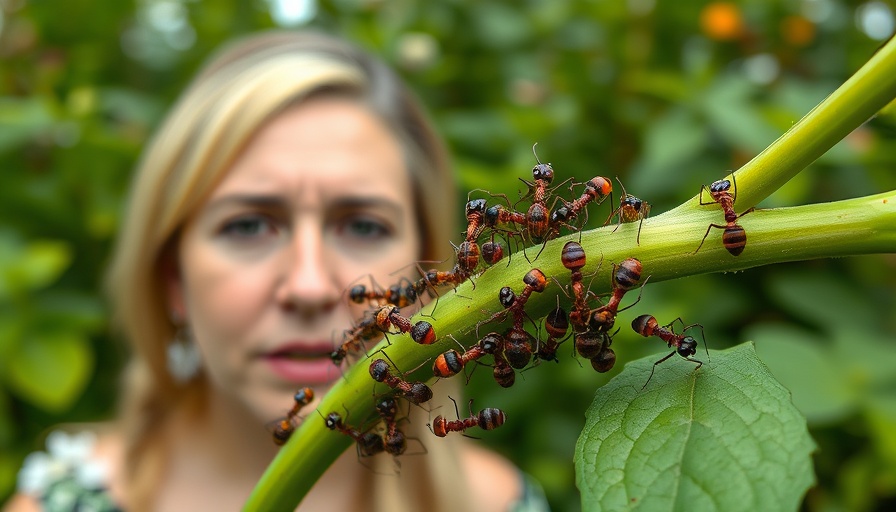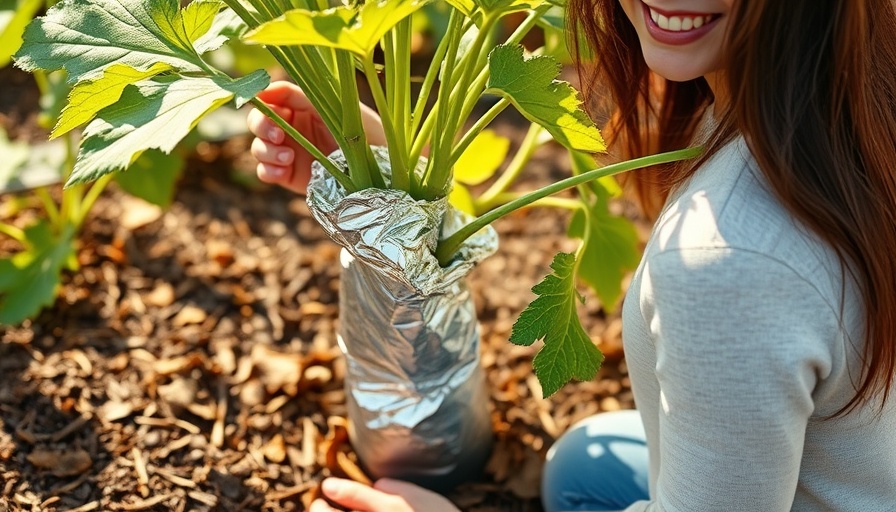
Weeds: Friends or Foes?
When you picture a garden, you might imagine vibrant flowers and healthy vegetables, but the presence of weeds often turns that idyllic image into a battleground. As discussed in the video “Do YOU Really Need to Weed Your Garden?”, the relationship between weeds, soil health, and plant growth is not as straightforward as many tend to think. Every time you yank a weed from your garden, you may inadvertently be harming the very soil that nurtures your plants. Understanding the dual role of weeds can lead to smarter gardening practices that enhance both soil health and plant vitality.
In the video "Do YOU Really Need to Weed Your Garden?", the discussion dives into the complex relationship between weeds and garden health, sparking a deeper analysis on effective gardening strategies.
The Science Behind Weeds
Weeds, defined as plants that grow where they aren't wanted, can either benefit or harm your garden. Research shows that a moderate presence of weeds can have minimal adverse effects on yields in home gardens. For example, a meta-analysis published in 2001 in Agricultural Ecosystems and Environment revealed that when competition is low, the impact of these pesky plants on crop yields is negligible.
Moderate weed coverage can actually enhance soil structure, improve water infiltration, and promote microbial diversity, laying the groundwork for a healthier garden ecosystem. In particular, deep taproot weeds, like dandelions, can break up compacted soil and assist in infusing nutrients back into the earth. As a gardener, embracing this science allows you to use weeds as natural allies, carefully managed rather than entirely eradicated.
Navigating the Balance
However, not all weeds are created equal. Invasive species, often referred to as noxious weeds, can jeopardize your garden’s health. Such plants aggressively compete for sunlight, water, and nutrients, endangering the vitality of your more desirable crops. For instance, thistles have been shown to heighten the risk of pest infestations in surrounding plants. This highlights the importance of distinguishing between beneficial and harmful weeds in your garden.
As Michael Donovan underscored in the video, it’s essential to employ a balanced approach to weed management. Instead of ruthlessly pulling every weed in sight, consider the specific roles that various plants play within your garden ecosystem. By mimicking nature’s biodiversity, gardeners can foster a thriving environment.
The Strategic Approach to Weeding
One effective strategy is to allow non-invasive weeds to coexist when they aren't competing for critical resources. This could include low-growing species that don’t block sunlight from your tomatoes, enriching your garden’s microbial landscape while nurturing your crops. Conversely, when dealing with shallow-rooted crops like lettuce or spinach, aggressive weeding becomes necessary to avoid depletion of essential nutrients and water.
Additionally, timing plays a crucial role in weed management. Younger weeds, when in the early cotyledon stage, can be removed without causing significant soil disruption. This strategy allows for effective management without triggering adverse effects on the root system and microbial health of the surrounding soil.
Tools and Techniques for Effective Weeding
Employing techniques such as sheet mulching can provide a vital remediation strategy, effectively blocking out problematic weeds while protecting existing plants. Using materials like cardboard or biodegradable mats topped with organic mulch creates barriers that suppress weed growth without damaging the soil beneath.
Ultimately, the key takeaway for Okanagan gardeners is that a weed-free garden is not the ultimate objective. Instead, gardeners should focus on managing competition in a well-informed, science-based manner. Through this lens, it becomes clear that some weeds can coexist beneficially with your plants, contributing to the garden’s overall health.
Create a Thriving Ecosystem
Your journey toward an effective weed management strategy begins with understanding the balance of nature in your garden. There’s strength in the weeds; when managed wisely, they can play a role in the harmony of your planting ecosystem. Sharpen your gardening skills by viewing weeds not simply as adversaries but as part of the rich tapestry that supports ecological balance. With strategic thinking and thoughtful integration of beneficial plants, your garden can thrive.
As you implement these insights, consider how each weed interacts within your garden space. It’s a complex web of interactions, and your decisions can have lasting impacts. Now more than ever, understanding your nemeses in the garden sets the stage for success.
If you’re ready to dig deeper into effective gardening strategies and improve your practices, be sure to explore more resources that highlight sustainability in horticulture.
 Add Row
Add Row  Add
Add 




 Add Row
Add Row  Add
Add 

Write A Comment